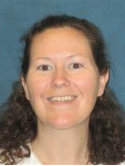A randomized controlled trial of a distress screening, consultation, and targeted referral system for family caregivers in oncologic care Journal Article
| Authors: | Applebaum, A. J.; Schofield, E.; Kastrinos, A.; Gebert, R.; Behrens, M.; Loschiavo, M.; Shaffer, K. M.; Levine, M.; Dannaoui, A.; Bellantoni, C.; Miller, M. F.; Zaleta, A. K. |
| Article Title: | A randomized controlled trial of a distress screening, consultation, and targeted referral system for family caregivers in oncologic care |
| Abstract: | Objective: Distress screening is standard practice among oncology patients, yet few routine distress screening programs exist for cancer caregivers. The objective of this study was to demonstrate the feasibility, acceptability, and preliminary efficacy of Cancer Support Source-CaregiverTM (CSS-CG, 33-item), an electronic distress screening and automated referral program with a consultation (S + C) to improve caregiver unmet needs, quality of life, anxiety, depression, and distress relative to Enhanced Usual Care (EUC; access to educational materials). Method: 150 caregivers of patients with varying sites/stages of cancer were randomized to S + C or EUC and completed assessments at baseline, 3-months post-baseline, and 6-months post-baseline. A subset of participants (n = 10) completed in-depth qualitative interviews. Results: S + C was feasible: among 75 caregivers randomized to S + C, 66 (88%) completed CSS-CG and consultation. Top concerns reported were: (1) patient's pain and/or physical discomfort; (2) patient's cancer progressing/recurring; and (3) feeling nervous or afraid. Differences between groups in improvements on outcomes by T2 and T3 were modest (ds < 0.53) in favor of S + C. Qualitative data underscored the helpfulness of S + C in connecting caregivers to support and helping them feel cared for and integrated into cancer care. Conclusions: S + C is feasible, acceptable, and yields more positive impact on emotional well-being than usual care. Future studies will examine programmatic impact among caregivers experiencing higher acuity of needs, and benefits of earlier integration of S + C on caregiver, patient, and healthcare system outcomes. © 2024 The Authors. Psycho-Oncology published by John Wiley & Sons Ltd. |
| Keywords: | adult; controlled study; middle aged; major clinical study; cancer recurrence; cancer growth; follow up; neoplasm; neoplasms; quality of life; pain; randomized controlled trial; feeding behavior; psychology; oncology; cancer therapy; risk assessment; health care; health care utilization; depression; screening; medical oncology; psycho-oncology; distress syndrome; referral and consultation; health care system; consultation; caregiver; clinical effectiveness; fear; mental health; patient referral; health care access; nervousness; nutrition; caregivers; psychosocial; clinical outcome; family caregivers; referral; physical disease; oncologic care; unmet needs; distress screening; cancer; humans; human; male; female; article; human needs; program feasibility; coronavirus disease 2019; program acceptability; emotional well-being; caregiver unmet needs; physical discomfort; targeted referral system |
| Journal Title: | Psycho-Oncology |
| Volume: | 33 |
| Issue: | 2 |
| ISSN: | 1057-9249 |
| Publisher: | John Wiley & Sons |
| Date Published: | 2024-02-01 |
| Start Page: | e6301 |
| Language: | English |
| DOI: | 10.1002/pon.6301 |
| PUBMED: | 38363002 |
| PROVIDER: | scopus |
| PMCID: | PMC11250988 |
| DOI/URL: | |
| Notes: | The MSK Cancer Center Support Grant (P30 CA008748) is acknowledged in the PDF -- Corresponding author is MSK author: Allison J. Applebaum -- Source: Scopus |










